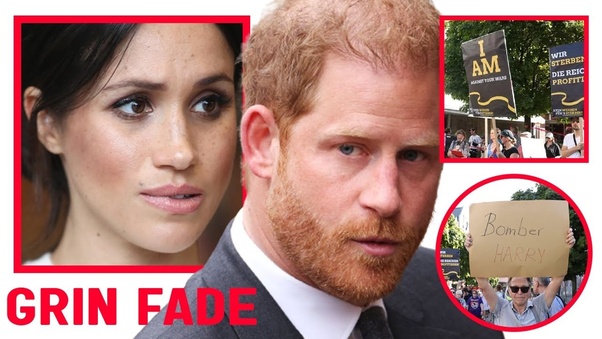Must Read
The Harkles’ Controversial $55,000 Earnings from Invictus Games
In a surprising twist of events, Prince Harry and Meghan Markle, known as the Duke and Duchess of Sussex, have found themselves embroiled in a heated controversy.
Their recent payment of $55,000 for their participation in the esteemed Invictus Games has sparked a wave of criticism and outrage among veterans and supporters of the event.
The couple, affectionately dubbed the Harkles, now face scrutiny regarding their motives and the implications of their lucrative involvement.
The Invictus Games, established by Prince Harry in 2014, have been widely praised as a significant platform for wounded, ill, and injured servicemen and women to demonstrate their remarkable resilience and determination.
It serves as a tribute to their unwavering spirit and aims to raise awareness about the challenges they confront.
The event has garnered substantial backing and admiration globally over the years.
Nevertheless, the revelation of the Harkles' earnings has prompted doubts about their dedication to the cause.
Critics argue that their substantial paycheck contradicts the core values of the Invictus Games, which are founded on altruism and support for veterans.
How can the couple purport to champion a cause while profiting significantly from it?
Veteran groups have swiftly expressed their disillusionment and discontent with the situation.
Many contend that the Harkles' involvement in the Invictus Games should have been driven by a genuine desire to effect change rather than a lucrative opportunity.
For individuals who have devoted their lives to serving their nation, the notion of profiting from their hardships is deeply troubling.
Some veterans have taken to social media to voice their frustration, with one Twitter user stating, “As a wounded veteran, I'm appalled by the Harkles' earnings from the Invictus Games.
It's a disrespect to all those who have sacrificed so much.”
The controversy has also sparked a broader discussion about the role of celebrities in philanthropy.
While it is common for high-profile figures to support charitable causes, the Harkles' situation raises questions about the boundary between authentic activism and self-promotion.
Are celebrities leveraging their influence to drive meaningful change, or are they exploiting popular causes for personal gain?
Supporters of the Harkles argue that they are justified in earning a living and that their proceeds from the Invictus Games should not be viewed as a betrayal.
They emphasize the couple's vocal commitment to various charitable initiatives and their efforts to raise awareness about crucial issues.
Additionally, they assert that the Harkles' fame and influence draw attention to the cause, ultimately benefiting veterans.
However, skeptics remain unconvinced.
They suggest that the Harkles' considerable wealth and privilege hinder their understanding of the struggles faced by wounded veterans.
While their involvement may bring visibility to the cause, it also risks overshadowing the very individuals the Invictus Games seek to honor.
Moreover, the substantial payment they received raises concerns about the event's financial priorities and whether resources could have been better directed to support veterans directly.
Following the uproar, the Harkles have maintained a relatively low profile.
Their representatives released a statement underscoring their commitment to the Invictus Games and their ongoing support for veterans through various means.
Nonetheless, the damage has been done, and the repercussions of this scandal on their reputation and future charitable engagements remain uncertain.
The Harkles' earnings of $55,000 from the Invictus Games have ignited a storm of criticism and backlash.
The controversy surrounding their participation raises pertinent questions about the involvement of celebrities in philanthropy and the potential risks of intertwining activism with personal profit.
As the dust settles, the true impact of this scandal on the Invictus Games and the veterans it aims to assist remains unclear.
However, what is evident is that the Harkles' earnings have cast a shadow over an event meant to celebrate the resilience and bravery of wounded servicemen and women.




















